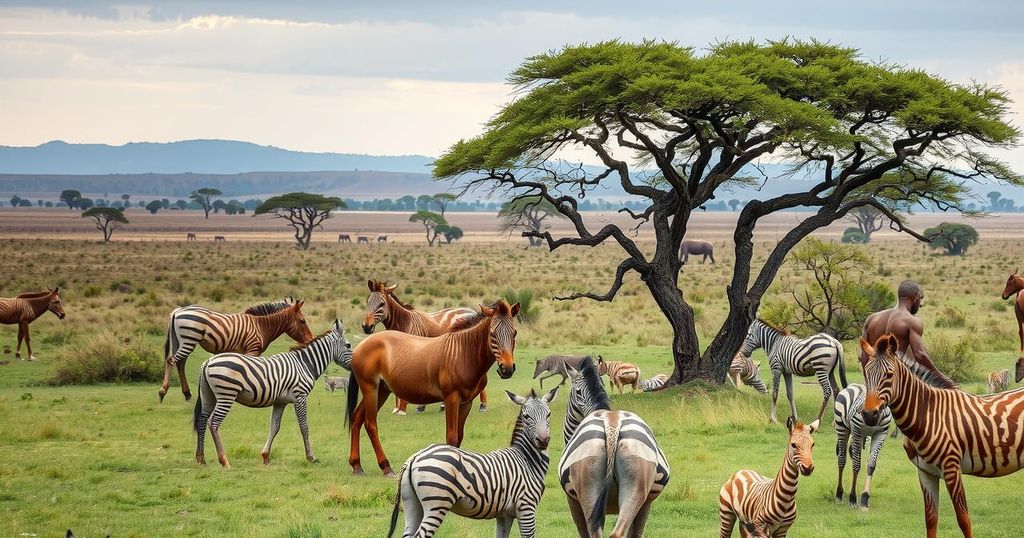Impact of Climate Change on Wildlife Migration in Serengeti National Park

The migration patterns of wildebeest and other animals in the Serengeti National Park are being increasingly impacted by climate change, leading to shifts in their traditional routes and behaviors. With rising temperatures and erratic rainfall patterns, the ecological balance of this region faces significant threats, highlighting the urgent need for conservation measures.
In the vast savanna of Tanzanian Serengeti National Park, Julia Jones, an experienced guide, pointed out a herd of wildebeest grazing in an area enriched by recent rains. This occurrence, while typical of the rainy season, highlights a significant disruption in wildlife patterns due to changing climate dynamics. Gadiel Tanapa, the park’s ecologist, noted that the traditional migratory routes of wildebeest have shifted due to alterations in rainfall. Usually, these animals would migrate northward to the Maasai Mara reserve during the dry season for nourishment and hydration, but climate change has complicated this cyclical journey. Through erratic weather, severe droughts, and an alarming temperature increase of up to 5.8°C over several decades, the delicate ecological balance is being threatened, as highlighted in a recent study published in the journal PLOS Climate.
The Serengeti ecosystem is renowned for one of the most significant land migrations in the world, where wildebeest, zebras, and other herbivores traverse vast distances to find optimal grazing lands. The migration is primarily influenced by patterns of rainfall and the availability of water sources. However, the alterations in climatic conditions, attributed to climate change, have begun to disrupt these natural behaviors and routes, prompting ecological concerns regarding the future of these species and their habitats.
In summary, the effects of climate change are profoundly impacting the migratory behaviors and ecological dynamics within the Serengeti National Park. The traditional paths of species such as wilderness, zebras, and gazelles are being altered, leading to unpredictable patterns that could have long-term consequences. Understanding these challenges is critical to implementing effective conservation strategies and ensuring the sustainability of this remarkable ecosystem.
Original Source: www.lemonde.fr






